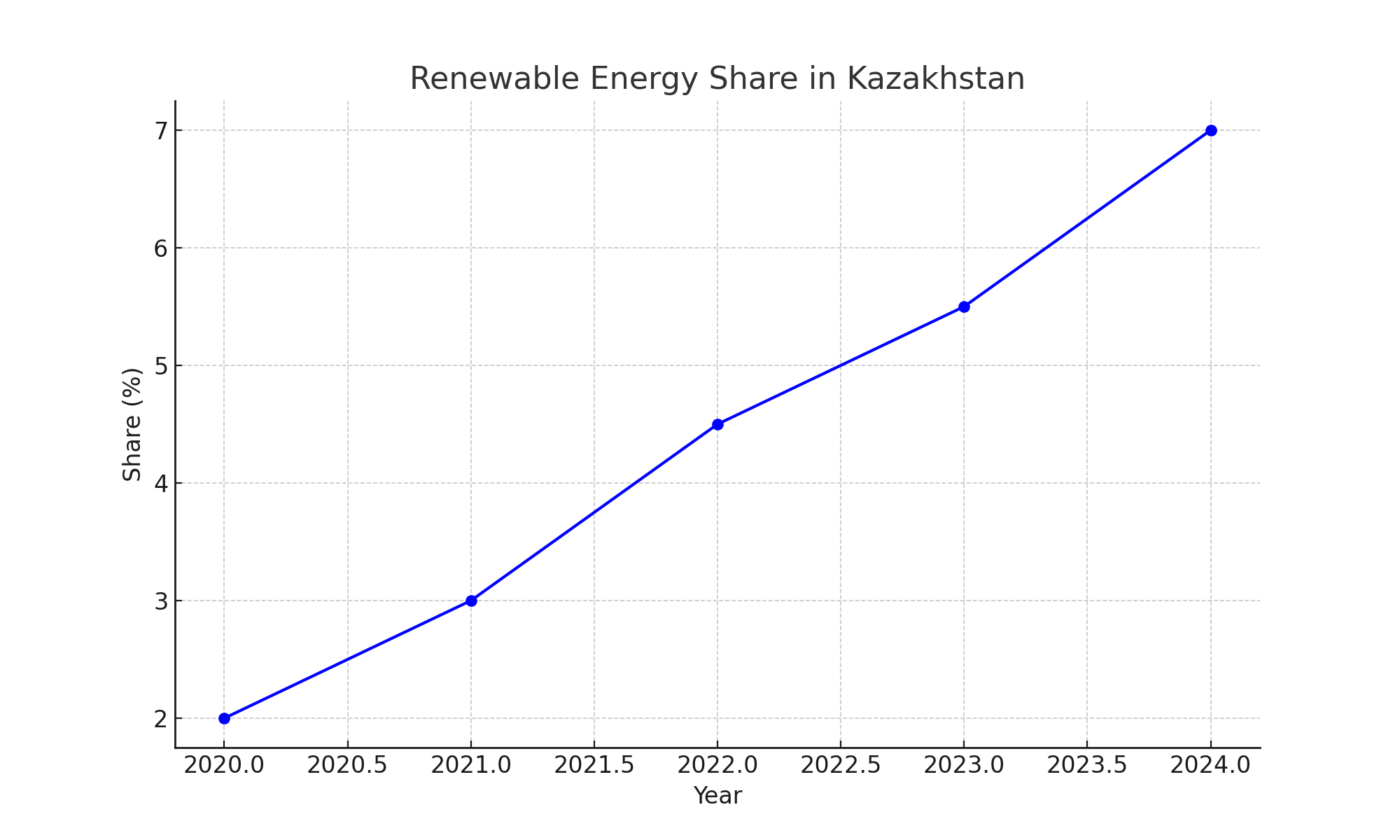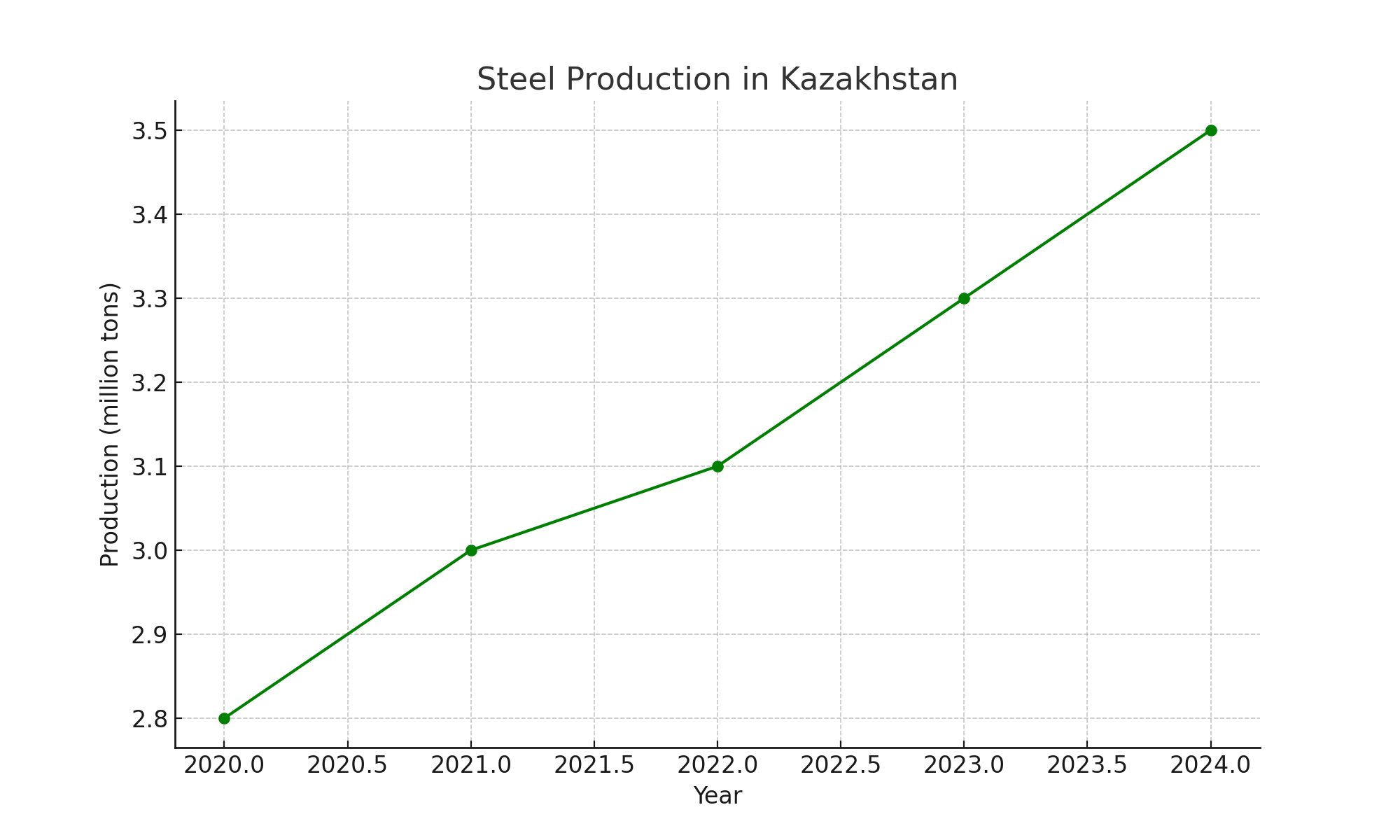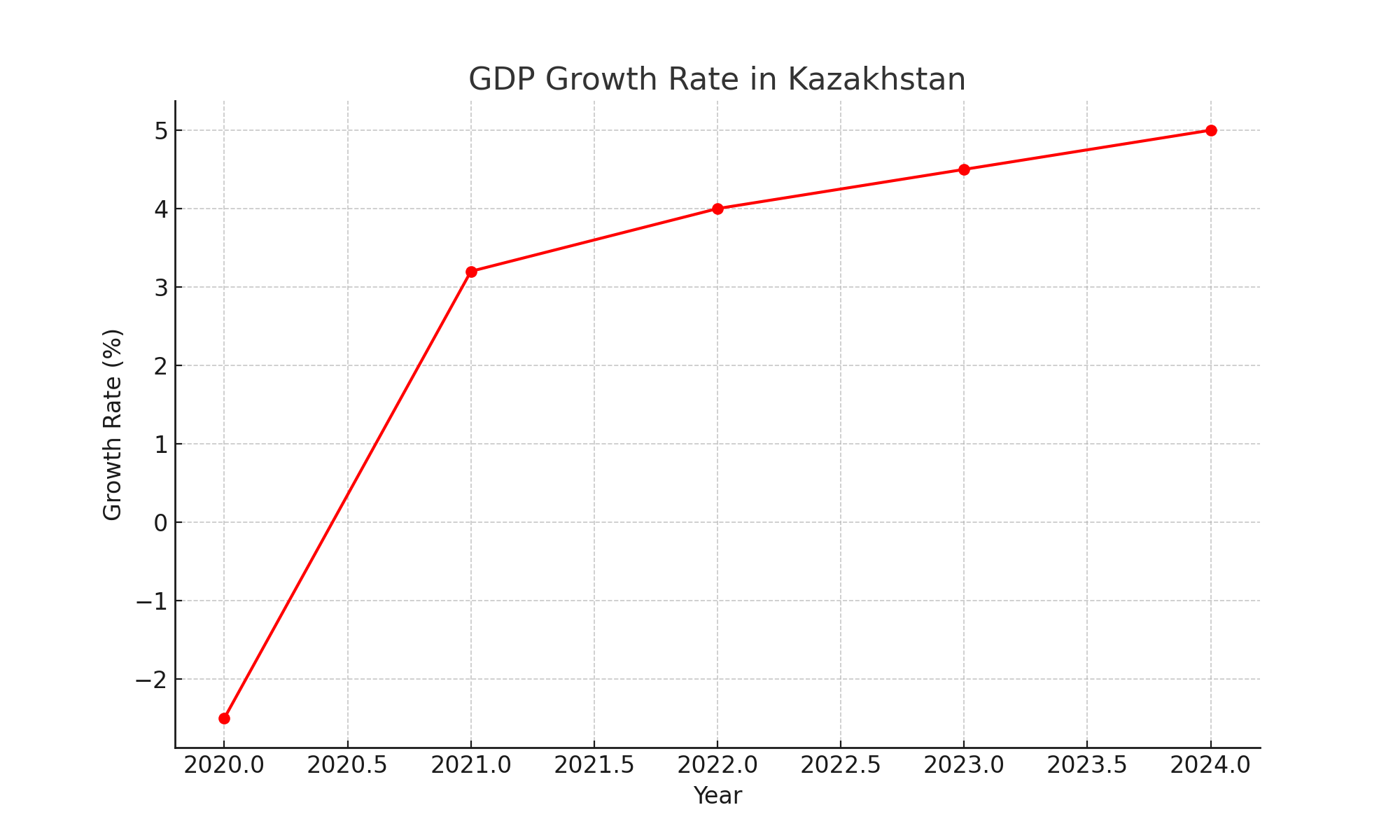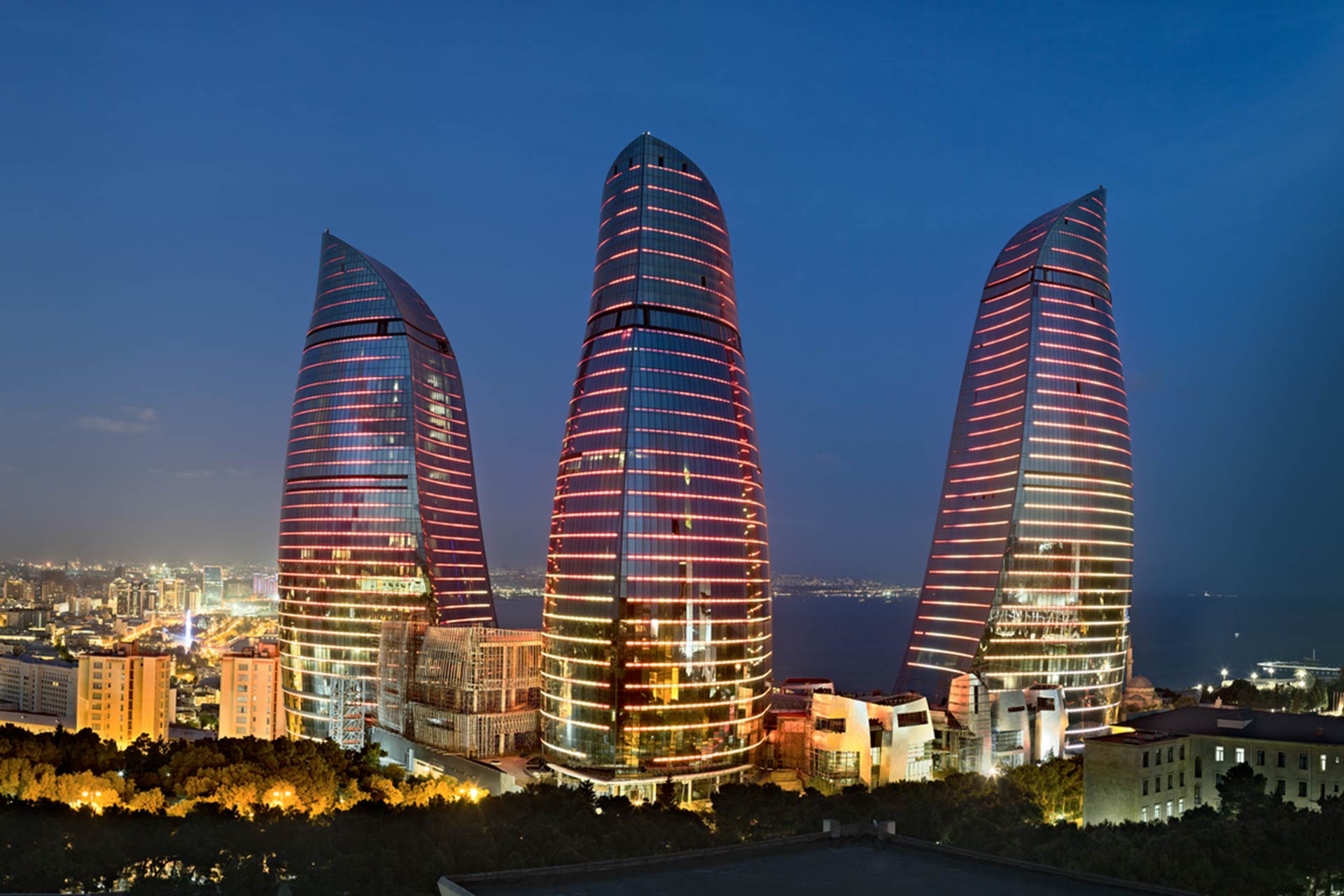Kazakhstan
Economic Development and Prospects
Kazakhstan’s economy benefits significantly from its abundant natural resources, particularly oil and gas. However, the country has started to take significant steps to diversify its economy and reduce dependency on these resources. For instance, the Kazakh steel producer Qarmet is undergoing substantial investments to modernize its production capacity and improve environmental standards. These investments aim to increase production to 5 million tons of steel by 2028 while significantly reducing CO2 emissions.
Additionally, Kazakhstan aims to become a global player in the hydrogen economy. With the support of German companies, the country is developing projects to produce green hydrogen. The Hyrasia one project, led by the Svevind Energy Group, involves investments of 50 billion euros and plans to produce 2 million tons of green hydrogen annually. These efforts are part of Kazakhstan’s long-term strategy to achieve carbon neutrality by 2060.
Renewable Energy
Kazakhstan is heavily investing in renewable energy to reduce its reliance on fossil fuels. Projects like Hyrasia one, developed by the Svevind Energy Group, plan to generate 40 gigawatts of electricity from renewable sources, including wind and solar energy. These projects are part of the country’s broader strategy to achieve carbon neutrality by 2060. The share of renewable energy in total electricity production is expected to increase significantly as a result.
The geographical conditions of Kazakhstan provide ideal opportunities for wind and solar energy. The vast deserts and steppes of the country offer consistent wind conditions and strong sunlight, allowing for high efficiency in renewable energy installations. Despite favorable conditions, renewable energy accounted for only 4.5% of total electricity production in 2022. Current investments and projects aim to significantly increase this share in the coming years.
Renewable Energy Share in Kazakhstan

Digitalization and ICT
Kazakhstan is advancing the digitalization of its economy and infrastructure. The government is focusing on modern technologies and investments in digital infrastructure to make the country a leading digital hub in Central Asia. This includes expanding broadband and satellite communication and introducing new digital services beneficial to both the population and businesses.
By developing digital hubs and promoting start-ups in the technology and ICT sectors, Kazakhstan is positioning itself as an attractive destination for investments in digital technologies. These measures aim to enhance the country’s competitiveness and improve access to modern technologies and services for all citizens. The government also plans to leverage international collaborations to further promote growth and innovation in the digital sector.
Transport and Logistics
Kazakhstan plays a central role in the international transport and logistics sector, particularly through its location on the Middle Corridor, a crucial transit route between Europe and Asia. The government is making significant investments in expanding transport infrastructure, including road and rail projects and modernizing ports on the Caspian Sea. These investments aim to increase the efficiency of freight transportation and establish Kazakhstan as a logistics hub in the region.
A significant project involves expanding port infrastructure in Aktau and Kuryk to increase cargo handling capacities and create new berths. These measures aim to improve Kazakhstan’s connectivity to international markets and strengthen the country’s competitiveness in global trade. The expansion of transport and logistics infrastructure is expected to further enhance Kazakhstan’s role in international trade.
Steel Production in Kazakhstan

Pharmaceutical Industry
Kazakhstan is investing in developing its pharmaceutical industry to increase local production and reduce dependence on imports. The Pirallahi Industrial Park offers incentives for foreign investors, including tax advantages and duty-free imports of equipment. These measures aim to promote pharmaceutical production and create new jobs.
The government has launched several initiatives to boost the production of pharmaceuticals and medical devices in the country. By investing in modern production facilities and promoting research and development, Kazakhstan aims to enhance the competitiveness of its pharmaceutical industry. These efforts are part of a broader strategy to diversify the economy and improve healthcare in the country.
Competitiveness and Economic Freedom
Kazakhstan has made significant progress in improving its competitiveness in recent years. According to the World Economic Forum’s Global Competitiveness Index, Kazakhstan ranks 55th out of 137 countries, reflecting improvements in areas such as infrastructure, macroeconomic stability, and innovation capability. These advancements are part of the country’s efforts to become a more attractive destination for foreign investments and promote economic growth.
In the Index of Economic Freedom, Kazakhstan ranks 39th out of 178 countries. This ranking evaluates economic freedom based on criteria such as property rights, government integrity, tax burden, and regulatory efficiency. Despite these positive ratings, challenges remain, particularly in combating corruption and improving legal frameworks to create a more favorable business environment.
Insurance and Refinancing Options
According to the OECD country rating, insurance and refinancing options for businesses in Kazakhstan are available. Economic stability is strengthened by diversifying the economy and investing in new sectors. Companies operating in Kazakhstan can receive support from various government programs and international financial institutions to secure and refinance their investments.
These insurance and refinancing options are especially important for foreign investors entering the Kazakh market. By collaborating with international partners and utilizing global financial instruments, Kazakhstan can further diversify its economy and strengthen investor confidence.
GDP Growth Rate in Kazakhstan







